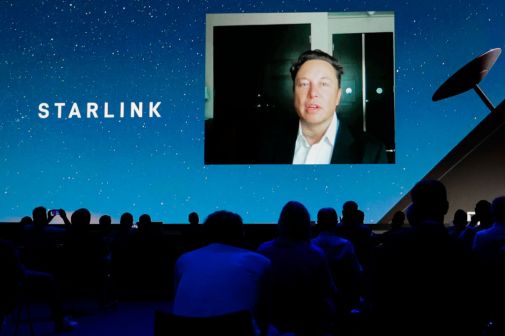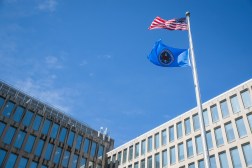Board calls for Pentagon chief innovation officer position

It’s not that there’s no innovation in the Defense Department — it’s just dispersed in disconnected pockets, making meaningful action on good ideas a formidable challenge, the newly launched Defense Innovation Board reported Wednesday.
That’s the general consensus of the board, which Secretary Ash Carter handpicked earlier this year to advise him where he should focus Pentagon resources to facilitate a more innovative and modern Defense Department. And to help reduce those siloes of innovation, the board — led by Eric Schmidt, executive chairman of Alphabet Inc. and former Google CEO — recommended foremost that DOD create a secretary-appointed chief innovation officer position.
“There are pockets, both large and small, of innovation activities within the department,” said board member Cass Sunstein, a professor at Harvard Law School. “They’re extremely impressive.”
However, Sunstein added, “Sharing of best practices and coordination of excellent ideas is less than ideal.”
A chief innovation officer, the board believes, would provide the coordination to connect the innovative ideas hidden deep within the massive department.
“The idea here would be that there would be a resource, a sharing of ideas, and an effort to spread the best thinking from one part of the department to another,” he said, recommending also the creation of a DOD innovation network that allows personnel to “to float ideas, to create suggestions, to make them go from one place where they’re actually working to another” — all of which could be done in the near future.
The board is still getting up to speed, with many members — like astrophysicist Neil deGrasse Tyson and Code for America founder Jennifer Pahlka, among others — who were only certified days prior to Wednesday’s meeting. Carter also selected technology author and journalist Walter Isaacson, LinkedIn co-founder Reid Hoffman, and University of Texas Chancellor William McRaven as members of the board, along with Schmidt, earlier this year.
The group presented a handful of interim recommendations it developed in listening sessions in recent months across DOD, its agencies and the services.
From that, Schmidt said, the board learned “there’s lots of ideas, but there’s not a process for taking those ideas and making them into a scalable innovation culture. That’s from my perspective what needs to be addressed.”
He added there are “things that are maybe not being done in the DOD today or are new ideas, or ideas that might be important in the future, might not have occurred, or might not have enough political currency within the bureaucracy.”
The need to recruit talented computer scientists, engineers and cybersecurity experts was common refrain in the recommendations of the 15-member board, which features several renowned academics. It notably pitched the idea of creating a “digital ROTC program” in which the department would pay for college students’ tuition in computer science fields in return for their eventual service.
Addressing the apparent budgetary concerns such a program would create, Instagram COO Marne Levin rebutted, “One only has to think of the high cost of cyberattacks to understand the value of such an investment.”
The board also believes DOD could improve its information security, particularly around weapons systems, by enlisting the U.S. Cyber Command and NSA to perform ongoing analyses of its systems, rather than relying on the firewall to do its job.
From visits to weapons systems facilities like those at Nellis Air Force Base in Nevada, board member Milo Medin, vice president access services at Google Capital, observed that “their testing functionality is not like the testing that we do on the software systems at Alphabet and Silicon Valley companies in general, especially when it comes to security and vulnerability analysis.”
“The units we visited are excellent,” he said. “But they’re not really equipped to do this kind of innovation.”
Elsewhere, the board recommended:
- Establishing an institute or center of excellence for studying artificial intelligence and machine learning;
- Better incentivizing the innovation of DOD personnel;
- Increasing the speed of acquisition processes by increasing the use of mechanisms for waivers and offering incentives for quickly resolving concerns;
- Increasing investments in unit like the Defense Advanced Research Projects Agency, the Strategic Capabilities Office and the Defense Innovation Unit Experimental, and creating more connections among them; and
- Establishing a “human cloud” of computer programmers and software developers who are available on demand to swiftly solve software problems.
If these recommendations sit well, “over 2017 the idea would be to get the ideas out…and then have us monitor whether they’re actually happening or not,” Schmidt said. “In other words, is the change actually occurring, are the ideas taking fruit, is the leadership happy with the products of what we’ve done?”
Secretary Carter, in his opening remarks, expressed his pleasure in the board’s agility to offer its interim findings with such a quick turnaround. “I’m pleased that, rather than just going off and returning with a several hundred-page report, you’re here today to share these early findings with me and the public, and to solicit feedback as you begin your work,” he said.
“The Defense Innovation Board may not operate exactly like the other advisory boards we have here at DoD, and that’s okay,” Carter said. “After all, we have to be willing to do things a little bit differently if we’re going to succeed in this mission.”
Schmidt said this novel way of thinking — novel at least for the Defense Department — is important in advancing its mission and maintaining its military dominance internationally.
“The DOD mission is important; it’s very serious business,” he said. “I think we all believe an outside perspective would be beneficial, and we’ve set out to try to make some recommendations that might improve, from our perspective based on ideas from outside the Pentagon, how innovation occurs.”






